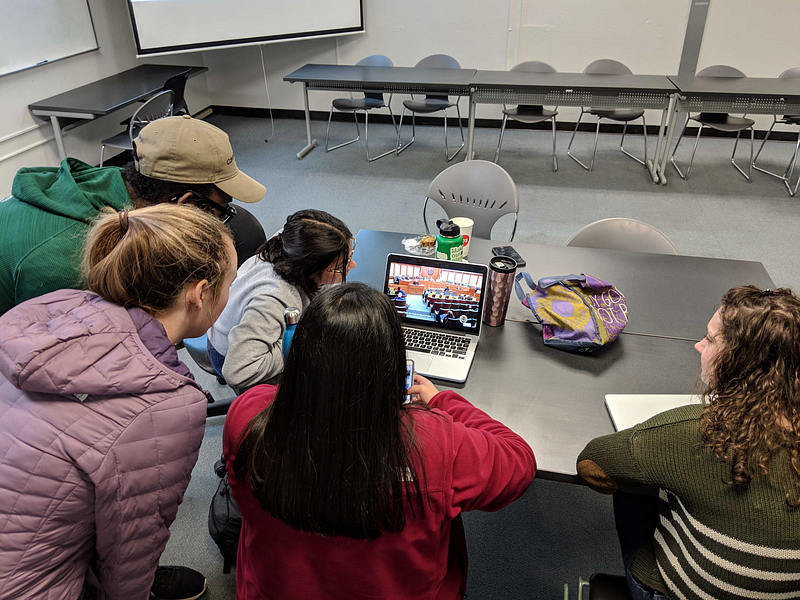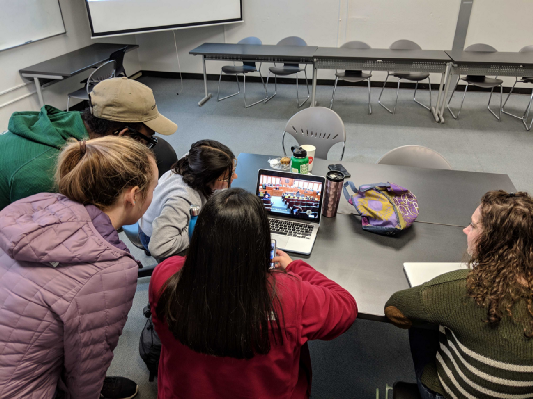On Tuesday March 5th, Generation Citizen’s Texas Executive Director, Meredith Norris gave testimony to the Texas House Public Education Committee on House Bill 1244, the Citizenship Test bill. Read below for what she said!
On behalf of Generation Citizen:
Educating our youth about the structures and functions of our government and equipping them with the knowledge, skills, and motivation to be lifelong citizens is an essential job of the public school system. The support that has emerged for implementation of the Citizenship Test as a graduation requirement for students is a nod to this. We, at Generation Citizen, a civics education nonprofit, are appreciative of this. We applaud you, and thank Representative Ashby, for the opportunity to discuss this legislation.
Yes, the Citizenship Test requirement can encourage the learning of key facts all students should know. Yet, in an era where civics education has largely fallen by the wayside, this mandate alone is insufficient, as it does not ensure that Texas’ youth will graduate equipped with the “civic readiness” they need. The Citizenship Test is a good start, yet any civic assessment should not just measure the knowledge part of civics, but the skills and critical thinking that civics education fosters. This bill, as currently written, does not ensure that students learn how government systems work, what their roles as citizens are, and how they can be meaningful leaders in their communities and in our country. The Citizenship Test requirement, and any civics assessment, must be paired with effective civic teaching: students need more than textbooks, they need opportunities for hands-on learning.
To ensure our students are ready to participate fully in civic life, our focus should be on requiring schools to offer curricular options for civics that utilize the best practices for civic learning. Student-led civics projects, analysis of current events, deliberative discussion, and participation in democratic processes are classroom practices that truly foster the civic knowledge, skills and motivation our youth need for lifelong civic participation. Just like students learn chemistry by practicing the scientific method in a lab, or learn how to drive through supervised, hands-on practice, students must learn civics by doing civics. Studies have found that students who receive a combination of traditional and interactive civics, score highest on civic assessments nationwide.
Beyond assessment, ensuring an effective civics education for all Texas students demands not just attention but the resources necessary for effective implementation. Professional development, curricular materials, and adequate standards are all necessary. Any legislation that requires civic learning must also include funding to support professional development and curricular materials.
We look to legislators like you who recognize the need for civics education to champion effective civics education policy. Any bill that suggests the Citizenship Test for high school graduation should also include, or be supplemented by, the guidelines and resources for an effective civics education.
Thank you.
More information on the best practices of civic learning:
Research has found ten best practices for high quality civic learning:
- Dedicated Civics Courses
- Simulations of Adult Civic Roles
- Deliberation of Current Issues
- Service Learning Opportunities
- Student-Led, Voluntary Associations
- Student Voices in Schools
- Action Civics
- News Media Literacy
- School Climate Reform
- Social Emotional Learning
Read the full white paper at: https://www.civxnow.org/static/media/SummitWhitePaper.fc2a3bb5.pdf
For more information on policy actions taken by other states to improve civics education, read our latest report here:
For more information, contact Meredith Norris, Central Texas Executive Director, Generation Citizen at mnorris@generationcitizen.org or 512 914 4812.

Generation Citizen Democracy Coaches watch live on their computer as Meredith gives testimony to the Public Education Committee
